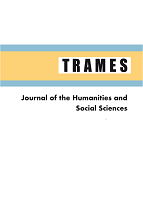SOFT POWER: ʻCUTE CULTURE’, A PERSUASIVE STRATEGY IN JAPANESE ADVERTISING
SOFT POWER: ʻCUTE CULTURE’, A PERSUASIVE STRATEGY IN JAPANESE ADVERTISING
Author(s): Oana-Maria BîrleaSubject(s): Economic policy, International relations/trade, Sociology of Culture, Marketing / Advertising
Published by: Teaduste Akadeemia Kirjastus
Keywords: soft power; kawaii culture; cuteness; Japanese advertising; persuasive strategy; collectivist culture; harmony; wa;
Summary/Abstract: The article addresses the ways in which soft power is used in Japanese advertising, both domestic and abroad. After the challenges brought by the end of World War II, Japan finds as a means of recovery the export of a new type of culture, focused on values different from the traditional ones and regains its place through cultural diplomacy (soft power). Having as a starting point this shift from hard (coercive approach) to soft power (persuasive approach) this article intends to explore the concept of kawaii, often associated with the new culture engaged in the promotion of nostalgia, disguised as cultural consumption, which promotes vulnerability, cuteness, innocence, purity etc. as values. The objective of this work is to show through different examples the main reasons why this overwhelmingly cute culture gained rapid popularity in Japan and abroad, going so far as to be used even by the government as part of advertising campaigns.
Journal: TRAMES
- Issue Year: XXVII/2023
- Issue No: 3
- Page Range: 311-324
- Page Count: 14
- Language: English

